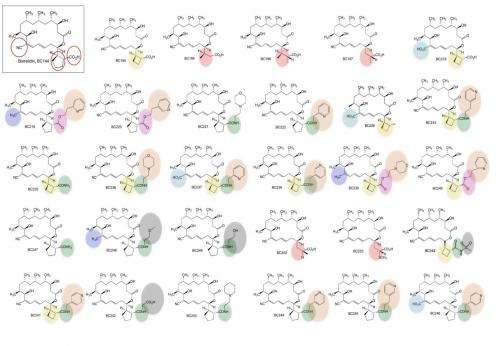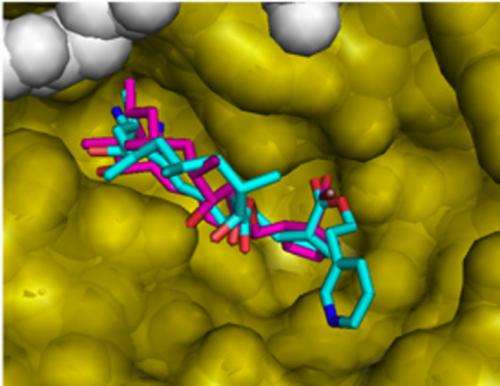Analogues of a natural product are drug candidates against malaria

Malaria is one of the most serious health problems worldwide, registering 200 million clinical cases and more than 600,000 attributable deaths per year, according to information from the World Health Organization in 2013. Given the emerging resistance to the standard treatment most widely used throughout the world, which is based on artemisinin and its analogs, there is a need for new antimalarial compounds.
In this regard, scientists headed by Lluís Ribas de Pouplana, ICREA researcher at the Institute for Research in Biomedicine (IRB Barcelona), report on a new family of molecules and a new system of action to combat the parasite Plasmodium, causal agent of malaria. Specifically, they describe two derivatives of borrelidin that completely remove the parasite load from mice and confer immunological memory to fight future infections. The latter property is an added value that is not shared by current antimalarial drugs. The results are published in the journal Proceedings of the National Academy of Sciences (PNAS).
"We have found that the chemical space of borrelidin offers the opportunity to find very strong and efficient antimalarial drugs. We must now study the action and pharmacological properties of these compounds in order to pave the way for their development as drugs. That is to say, we have to explain why they show low toxicity in human cells and understand how they induce immunological memory," states Lluís Ribas.
Borrelidin: a "new" agent against malaria
Borrelia is the bacteria produced by borrelidin, a toxic molecule for human cells. However, for several years, hundreds of analogues of this compound—small variations made in the lab—have been studied for use in cancer and heart disease treatment. The IRB Barcelona scientists performed an exhaustive analysis of the analogues and identified two—BC196 and BC220—that are useful for combating Plasmodium. The compounds show low toxicity in human cells in vitro and a high efficiency at clearing the parasites both from cells in vitro as well as from animals. "The efficiency of these two compounds and the doses to give to mice are comprable and even better than those of chloroquine, a compound that has been used to treat malaria for 100 years and that is no longer used because of emerging resistance worldwide," explains Ribas.

Objective: to attack the parasite in all phases of the infection
The new molecules act on the protein production machinery of the parasite and they are therefore efficient in all phases of parasite infection in humans. With respect to the specific mechanism of action, the compounds based on borrelidin inhibit one of the 20 tRNA synthetases of the parasite, key molecules for the correct production of the proteins required for growth, replication and infection.
"The synthetases are crucial for the parasite both when multiplying rapidly in the liver and when infecting red blood cells," explains Ribas, head of the Gene Translation Lab at IRB and expert in this fundamental process of life. "Because the compounds attack a general component of the protein production machinery, they are of considerable interest because drugs that act in all the stages of infection are also better for the prevention of the disease".
The findings are part of the final results of the European project Mephitis, coordinated by Ribas, which aims to increase the currently limited number of compounds available to tackle malaria.
"It is most gratifying to end Mephitis with a significant contribution to the pipeline of antimalarial compounds. We will see how far they get, but right now we have a new target and new molecules that work very well in the models tested," concludes the scientist.
More information: "Analogs of natural amyniacyl-tRNA synthetase inhibidors clear malaria in vivo." PNAS (8-13 Dec 2014) Early Edition, DOI: 10.1073/pnas.1405994111
Journal information: Proceedings of the National Academy of Sciences


















